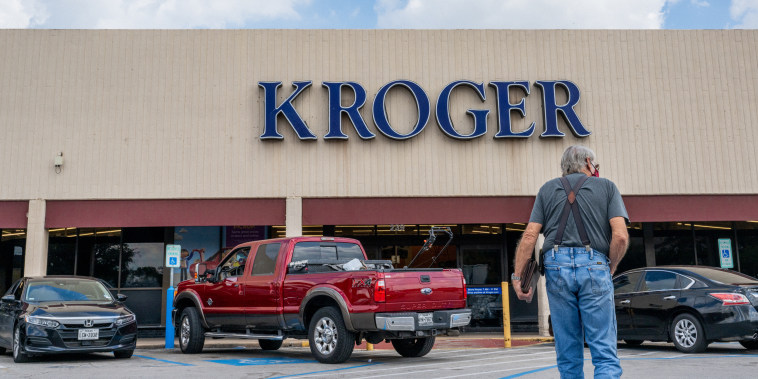In the world of retail and mergers, it is not uncommon for large companies to seek to consolidate their power and expand their influence. However, when such mergers threaten to harm competition and consumer choice, the government steps in to ensure that fair practices are upheld. In the case of the Biden administration’s lawsuit to block the merger of Kroger and Albertsons supermarkets, the issue at hand is one of significant consequence to the retail landscape.
The supermarket industry is a critical component of the national economy, providing essential food and household items to millions of consumers each day. With Kroger and Albertsons being major players in this sector, their proposed merger would undoubtedly have far-reaching implications for both businesses and consumers alike.
At the heart of the government’s challenge to the Kroger-Albertsons merger lies the concern that the combined entity would wield too much market power, potentially stifling competition and driving up prices for consumers. By joining forces, Kroger and Albertsons would significantly reduce the number of major supermarket chains in the market, creating a duopoly that could dominate pricing and product selection.
Moreover, the Biden administration asserts that the merger would harm suppliers by limiting their options for distribution and negotiation, further consolidating the power in the hands of the merged entity. With fewer competitors in the market, suppliers may be forced to accept unfavorable terms or risk losing access to a significant portion of the retail market.
From a consumer perspective, the potential negative impacts of the Kroger-Albertsons merger are clear. With fewer choices for grocery shopping, consumers may face higher prices, reduced quality, and less variety in products. The ability to shop around for the best deals and products could be severely curtailed if the merger is allowed to proceed unchecked.
In response to these concerns, the Biden administration has taken a proactive stance by filing a lawsuit to block the merger and preserve competition in the supermarket industry. By challenging the consolidation of market power and advocating for fair competition, the government aims to protect consumer interests and ensure that all players in the industry have a level playing field.
As the legal battle over the Kroger-Albertsons merger unfolds, the outcome will undoubtedly have significant implications for the future of the supermarket industry. Whether the merger is allowed to proceed or is ultimately blocked, the case serves as a reminder of the importance of maintaining fair competition and consumer choice in the marketplace. By upholding these principles, regulators can help ensure a healthy and vibrant retail sector that benefits businesses and consumers alike.
